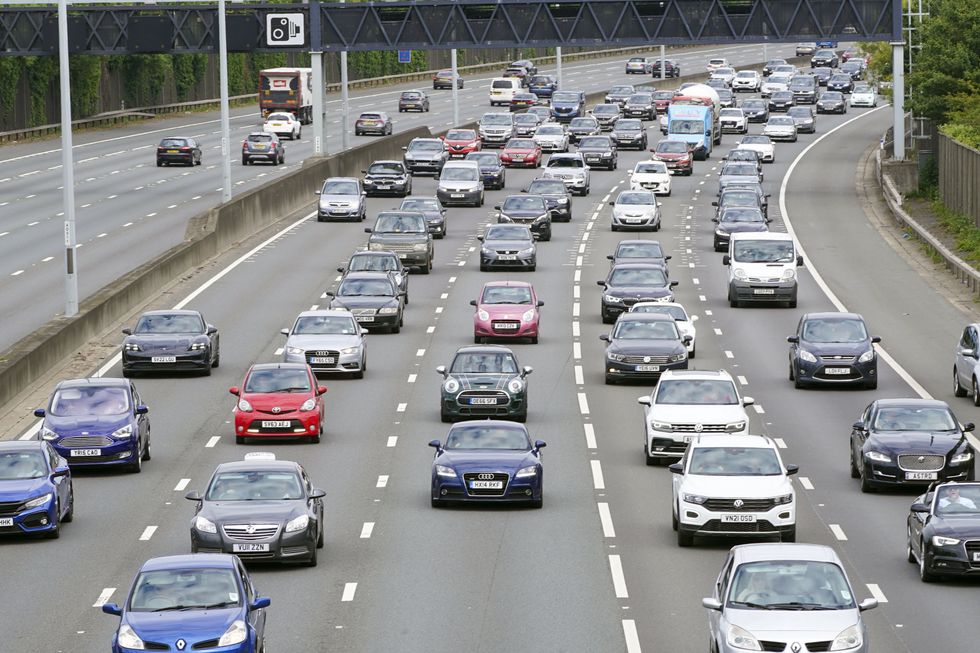Labour could be planning to introduce controversial pay-per-mile car taxes in the upcoming Autumn Budget in October, which would see motorists charged for using their vehicles.
Road pricing schemes, like pay-per-mile, have been promoted in recent years as a way for the Government to claw back revenue from the falling rate of fuel duty.
As more drivers switch to electric vehicles, which currently do not have to pay car taxes, revenue made from the added tax on petrol and diesel will fall, with some suggesting the total could reach £30billion within a decade.
Reports now suggest that the Treasury could be looking at ways to charge motorists based on how much they drive, with those living in rural areas and people who have to drive for work set to pay huge sums.
Do you have a story you’d like to share? Get in touch by emailingmotoring@gbnews.uk
Revenue from fuel duty receipts is expected to plummet over the next decade
PA
Earlier this month, former Chancellor Jeremy Hunt’s top advisor said the Treasury had been pushing for a pay-per-mile road tax scheme to be introduced to raise revenue and control the future of motoring taxation.
Adam Smith told the Telegraph that the Treasury had requested the Government look into road pricing scheme and even “start preparatory work” to develop a nationwide plan.
A pay-per-mile scheme would see drivers charged higher taxes if they use the road more often, with this system likely to work in conjunction with how polluting their vehicle is.
This could be devastating news for motorists who drive larger vehicles like SUVs, pick-up trucks and vans for work or leisure, especially diesel drivers.
Some experts have suggested that motorists could be given a certain limit of “free miles”, including those in rural areas as they have to travel further to access necessities like shops and hospitals.
AA President Edmund King had previously backed such a scheme, especially after the pandemic when car usage was not as high. However, he now believes that if a road pricing scheme were to be introduced, measures would need to roll out alongside it to support motorists.
He said: “If in the future a system is introduced, it must have incentives for those dependent on their cars in rural areas, disabled drivers, and shift workers.
“The scheme should be overseen by an independent body and should not aim to raise more revenue than is currently raised from drivers,” he told Auto Express.
A spokesperson for the Treasury said: “We are committed to supporting our automotive sector as we transition to electric vehicles in order to meet our legally binding climate targets.”
A 2021 report from the Tony Blair Institute for Global Change stated that annual fuel duty revenues would plummet by around £30billion by 2035 given the uptake of electric vehicles.
It suggested that tax rises would be needed equivalent to up to 2p on income tax “by the end of next Parliament and up to 6p by 2040.
Electric vehicle owners will have to start paying Vehicle Excise Duty from April 2025 with former Chancellor Jeremy Huny saying it would “create a fairer system of taxation” for all drivers.
LATEST DEVELOPMENTS:

Britons could be charged more if they drive more often
PA
Chancellor Rachel Reeves will unveil Labour’s first Budget on October 30, with drivers eagerly awaiting to hear any details of a road pricing scheme, as well as any mention of fuel duty.
Some experts have warned that petrol and diesel drivers would face “perma-high” prices at the pumps if Labour were to hike the rate of fuel duty.
Previously, Keir Starmer told GB News that his Government would review fuel duty changes on a “Budget-by-Budget” case, adding that Labout has consistently backed cuts and freezes to fuel duty.

